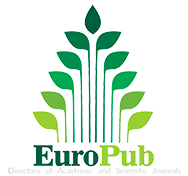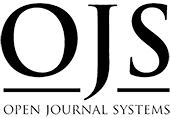Teachers’ viewpont on infusing sustainability in higher education curriculum
Keywords:
Sustainability, Sustainable development, Curriculum, Transformation, Higher educationAbstract
This article describes the perceptions of a group of Iberoamerican university lecturers on integrating sustainability into the curriculum. Unlike a competence-based approach, it is argued that specific sustainability courses fragment reality, resulting in an inappropriate basis for decision-making on social, economic, environmental and cultural issues, in a systemic way. In fact, from this strategy, nature is seen as an essencially material resource that must be reduced, reused, recycled and regenerated. From a quantitative approach, the responses to a questionnaire on curricular sustainability by a group of higher education teachers (N = 91) are analyzed. The results show that these teachers agrred with Infusing sustainability into the curriculum, as a transversal skill (M= 4,778). In addition, in the open question, most teachers agree on including sustainability in their own courses, from active methodologies. Therefore, it is concluded that specific courses on sustainability are not the best strategy to generate behavioral changes in students.
References
Besong, F. A. (2017). Infusing Sustainability in Higher Education in Ireland: The Green Curriculum Model (GCM) and the Dispositions, Abilities and Behaviours (DAB) Competency Framework [Thesis. Dublin City University]. https://hub-media.aashe.org/uploads/FridaBesong_Thesis_July25th_2017_FINAL.pdf
CRUE (2005). Directrices para la introducción de la Sostenibilidad en el Curriculum. https://www.crue.org/wp-content/uploads/2020/02/Directrices_Sosteniblidad_Crue2012.pdf
Earth Charter Center for Education for Sustainable Development (2014). The Heart of the Matter: Infusing Sustainability Values in Education:Experiences of ESD with the Earth Charter. https://rediie.cl/wp-content/uploads/The_Heart_of_the_Matter_Infusing_Sustain.pdf
Ehrenfeld, J. (2000). Industrial ecology paradigm shift or normal sceince? American Behavioral Scientist, 44(2), 229-244. https://rediie.cl/wp-content/uploads/Industrial_Ecology_Paradigm_Shift_or_Normal_Science.pdf
Glasser. H y Hirsh, J. (2020). Toward the Development of Robust Learning for Sustainability Core Competencies. Mary Ann Liebert, Inc., 9(3), 121-134. https://wmich.edu/sites/default/files/attachments/u159/2016/2016%20Core%20Competencies.pdf
Holst, J., Brock, A., Singer-Brodowski, M y de Haan, G. (2020). Monitoring Progress of Change: Implementation of Education for Sustainable Development (ESD) within Documents of the German Education System. Sustainability MDPI, 12(4306), 1-19. https://www.mdpi.com/2071-1050/12/10/4306
Gunawardana, A., Arooz, F. R., Peramunugamage, A. y Halwatura, R. U. (2020). Critical Analysis of Lecturer’s Perception on Integrating Concepts of Sustainability in University Curricular. Integrated Science Education Journal (ISEJ), 1(3), 109-121. https://rediie.cl/wp-content/uploads/AnupamasPaper.pdf
Moore, J. (2006). Seven recommendations for creating sustainability education at the university level. A guide for change agents. International Journal of Sustainability in Higher Education, 8(4), 326-339. https://educacionysustentabilidad.tecsuma.cl/wp-content/uploads/2011/11/EAS-MET-05-Recommendations-to-create-ESD-in-univ-Moore-2005.pdf
Muldrow, L., Chambers, B., Newell, M. & y Salter, A. (2019). Sustainability Infused across the Curriculum at a Minority-Serving Liberal Arts Institution: A Case Study. International Journal of Higher Education, 8(4), 1-9. https://files.eric.ed.gov/fulltext/EJ1220487.pdf
Scarff-Seatter, C. y K. Ceulemans, K. (2017). Teaching Sustainability in Higher Education:Pedagogical Styles that Make a DifferenceTeaching Sustainability in Higher Education. Canadian Journal of Higher Education 7(2), 47-70. https://files.eric.ed.gov/fulltext/EJ1154160.pdf
OECD (2018), The Future of Education and Skills: Education 2030. Position paper. https://www.oecd.org/education/2030/E2030%20Position%20Paper%20(05.04.2018).pdf
Scott, R. (2009). Sustainable curriculum, sustainable university. eCULTURE, 2(2009), 122-129. https://core.ac.uk/download/pdf/41527966.pdf
SOS (2021). Students, sustainability and education. Students Organizing for Sustanability International (OSO). https://sos.earth/wp-content/uploads/2021/02/SOS-International-Sustainability-in-Education-International-Survey-Report_FINAL.pdf
UNESCO (2018). Issues and trends in Education for Sustainable Development. https://rediie.cl/wp-content/uploads/Issues-and-trends-in-Education-for-Susta.pdf
UNESCO y MGIEP (2017). Re-thinking schooling for the 21st century. https://unesdoc.unesco.org/ark:/48223/pf0000260568
UNESCO. (2014). UNESCO roadmap for implementing the Global Action Programme on Education for Sustainable Development.
Vera, F. (2017). Cambio paradigmático: Un análisis crítico de la sostenibilización curricular en la educación superior chilena. Revista Akadèmeia, 16(1), 40-72. https://revistaschilenas.uchile.cl/handle/2250/35683
Vera, F. (2022a). ¿Por qué es necesario un enfoque transdisciplinar para abordar la Educación para la Sostenibilidad? Observatorio Allagi. https://allagi.cl/por-que-es-necesario-un-enfoque-transdisciplinar-para-abordar-la-educacion-para-la-sostenibilidad/
Vera, F. (2022b). Un nuevo enfoque pedagógico: Educación para la sostenibilidad. Publicaciones REDIIE. Periodismo Educativo. https://rediie.cl/wp-content/uploads/Educacio%CC%81n_para_la_sosteniblidad_compressed.pdf
Vera, F. (2022c). Enfoques EDS. Red Internacional de Investigadores en Educación. https://rediie.cl/enfoques-eds/








